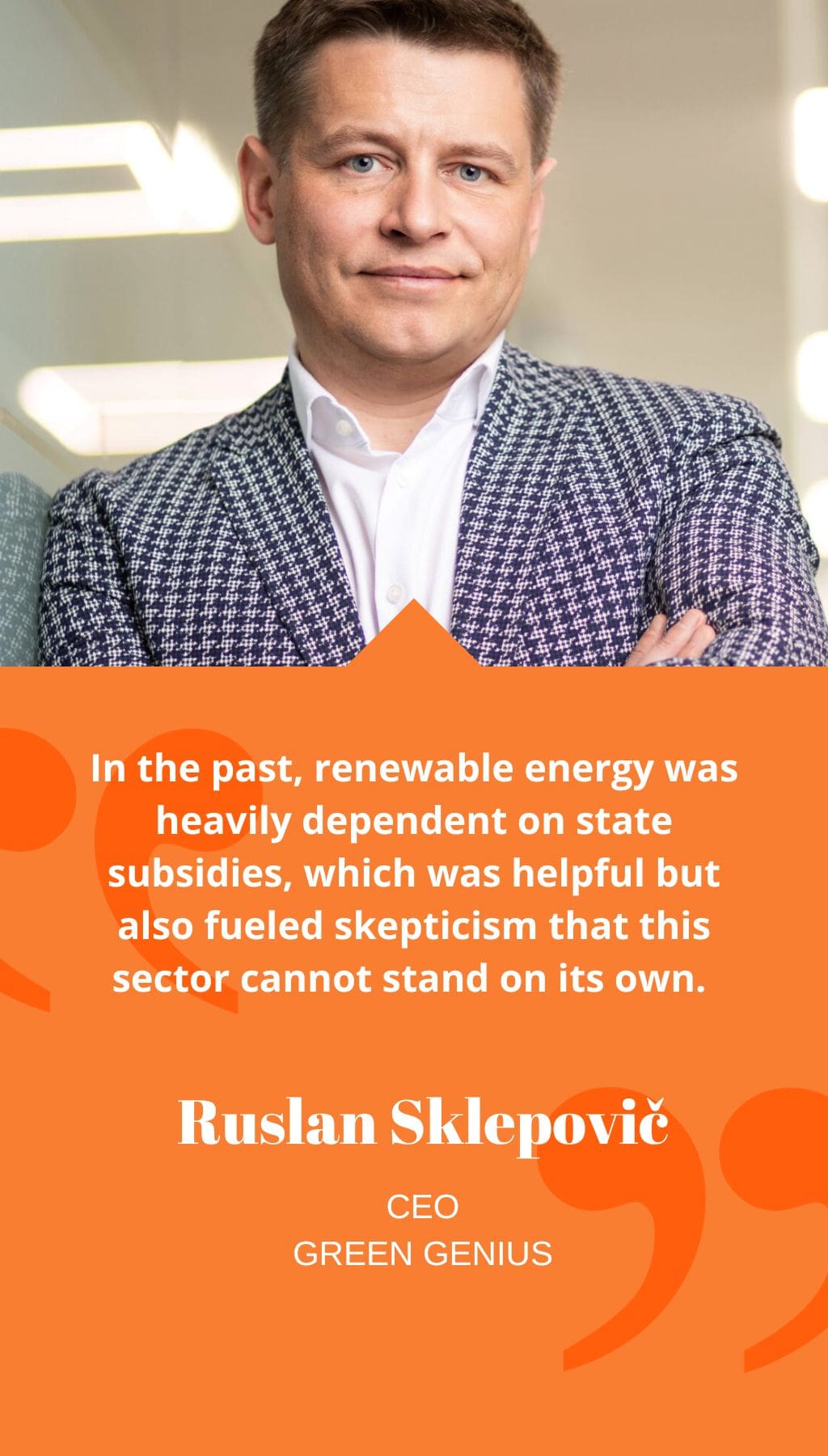
- Poland | 30 July 2019

Green Genius has numerous solar projects underway, and the solar sector is booming in Poland. What do you think is fueling this growth?
Yes, we are indeed witnessing what some people call a “renaissance of solar” in Europe. In 2019 alone, the installed capacity grew by 100% from 8 GW to 16 GW. The answer to what is fueling this growth is relatively simple. In the past, renewable energy was heavily dependent on state subsidies, which was helpful but also fueled skepticism that this sector cannot stand on its own. However, now companies like Green Genius are employing various strategies to seize this opportunity. Our vision at Green Genius is a combined strategy of selling some of the projects we develop and operating others, depending on factors such as technology, region, and economic parameters. What is important for us is to keep moving, adding to our pipeline, and generating new projects every year.
What challenges do you face in transforming the entire energy sector in Poland, and how do you plan to adapt to the current economic uncertainty caused by the COVID-19 crisis?
There are indeed challenges in transforming the entire energy sector in Poland. It requires vast financial resources, and the current uncertainty raised by the global COVID-19 crisis has made businesses reassess their strategies and plans. At Green Genius, we also acknowledge these challenges and understand the need to adapt our business plans based on the new reality. However, despite these challenges, we believe that Poland is and will remain a strategic market for us. We see significant growth potential for renewable energy in Poland, and we have already established ourselves as a large-scale solar energy developer in the market. We also announced plans to enter the biogas market last year. So, despite the current economic turmoil, we are committed to being in Poland for the long run.
Solar energy is often discussed as a part of a balanced energy matrix. To what extent do you think we can realistically rely on solar energy, considering factors such as available land for development?
The extent to which we can rely on solar energy is not an easy question to answer without referring to certain assumptions. However, if coal continues to be a significant part of the energy mix, solar energy may contribute around 15-20%. But if we assume that energy storage technology advances rapidly and becomes widely available, solar energy could potentially contribute up to about 40%. There are also other scenarios to consider, such as the decentralization of the grid. For example, there are villages in Germany that are 100% self-sufficient and completely disconnected from the grid, relying on solar, biomass, and biogas for all their energy needs. In Lithuania, the heating system is already 80% fueled by renewables, whereas just seven years ago, the share was only 20%. This fourfold increase is absolutely impressive.
Biogas initiatives seem to be less prominent compared to solar energy. Can you explain your interest in the biogas field and why it may not be receiving as much attention in Poland?
Unlike PV (photovoltaic) projects, biogas projects tend to be more complex. PV projects are straightforward, where once the development is finished, we hire maintenance and wait for the revenue to come in. On the other hand, biogas projects involve a complex value chain and require a whole new level of effort. Daily management of raw materials, logistics, and maintenance, as well as the involvement of teams of biologists, make biogas projects less scalable and more challenging to implement. However, the impact of biogas is significant. When organic waste is converted into biogas, methane emissions, which would otherwise go into the atmosphere, are reduced.














